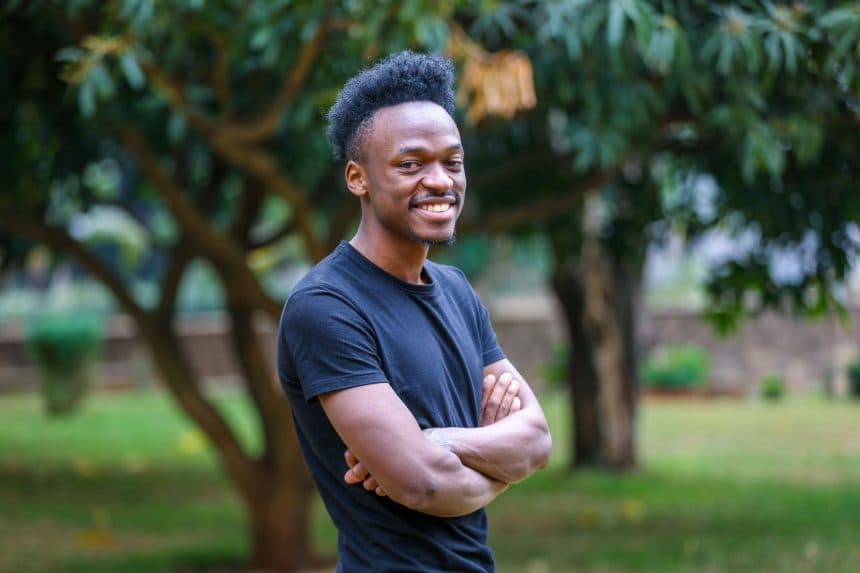We're loading the full news article for you. This includes the article content, images, author information, and related articles.
Elly Savatia's Terp 360, an AI-powered platform that translates speech into sign language, has secured the UK Royal Academy of Engineering's top award, promising to enhance accessibility for Kenya's deaf community in education, healthcare, and employment.

A Kenyan technology entrepreneur, Elly Savatia, has won the 2025 Africa Prize for Engineering Innovation for creating an AI-powered application that translates speech and text into sign language. Savatia was awarded £50,000 (approximately KSh 8.6 million) by the UK's Royal Academy of Engineering at a ceremony in Dakar, Senegal, on Thursday, October 16, 2025, EAT. His invention, Terp 360, which he describes as a “Google Translate for sign language,” uses lifelike 3D avatars to provide real-time translations, aiming to bridge the communication gap for deaf individuals across Africa.
The platform was selected from a shortlist of 16 innovators from seven African countries, including Ghana, Nigeria, Mozambique, Uganda, Tanzania, and Togo. Savatia’s innovation stood out among four finalists for its potential to drive social and economic inclusion. Rebecca Enonchong, chair of the prize’s judging panel, praised the innovation, stating, “What really stood out about Elly's solution, and Elly himself, is the level of innovation. It was really a demonstration that Africans are capable of using cutting-edge technology to solve problems, not just on the continent but beyond.”
In Kenya, the deaf community faces significant barriers in accessing essential services such as education, healthcare, and legal counsel due to a severe shortage of qualified sign language interpreters. Savatia noted that many companies cannot afford to hire interpreters, which hinders the integration of deaf individuals into the workforce. This challenge persists despite legal frameworks like the Persons with Disabilities Act, which mandates that employers reserve at least 5% of jobs for people with disabilities. “We see ourselves as an enabler. We are able to do sign language, but at scale,” Savatia explained.
Terp 360 was developed in close collaboration with members of Kenya's deaf and hard-of-hearing community. Using motion-capture technology, the team has recorded over 2,300 signs for words and phrases commonly used in the country. The platform currently translates English and Swahili into Kenyan Sign Language (KSL). Savatia’s company, Signvrse, founded in 2023, has established a motion-capture studio in Nairobi capable of recording up to 1,000 new signs daily to expand its vocabulary.
The Africa Prize for Engineering Innovation, established in 2014, is Africa's most significant award dedicated to engineering innovation, providing training, mentorship, and funding to entrepreneurs developing solutions for local challenges. The prize has supported 165 businesses across 22 countries since its inception. Savatia’s win marks another milestone for Kenya in the field of assistive technology, following Esther Kimani's 2024 victory for an AI-based crop disease detection tool.
The prize money will be used to scale Terp 360, with a focus on business-to-business markets in the education, corporate, and healthcare sectors. The long-term vision is to incorporate other African and global sign languages. The development roadmap includes adding Rwandan, Ugandan, South African, British, and American sign languages by mid-2027. While similar technologies exist globally, Terp 360 is distinguished by its focus on African sign languages and their unique cultural contexts, addressing a gap often overlooked by mainstream technology companies.
The innovation arrives at a crucial time, as advocates for the deaf community in Kenya continue to push for greater recognition and integration of KSL, which was adopted as the nation's third official language in the 2010 Constitution. Limited resources and a shortage of interpreters have slowed its widespread adoption, a challenge that technological solutions like Terp 360 are poised to address, potentially transforming millions of lives by fostering greater communication and accessibility.
Keep the conversation in one place—threads here stay linked to the story and in the forums.
Sign in to start a discussion
Start a conversation about this story and keep it linked here.
Other hot threads
E-sports and Gaming Community in Kenya
Active 9 months ago
The Role of Technology in Modern Agriculture (AgriTech)
Active 9 months ago
Popular Recreational Activities Across Counties
Active 9 months ago
Investing in Youth Sports Development Programs
Active 9 months ago